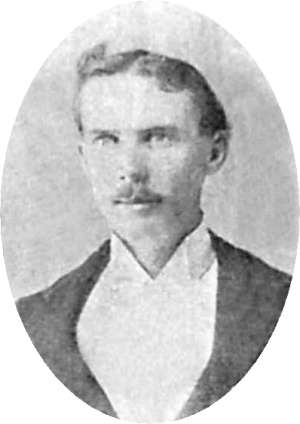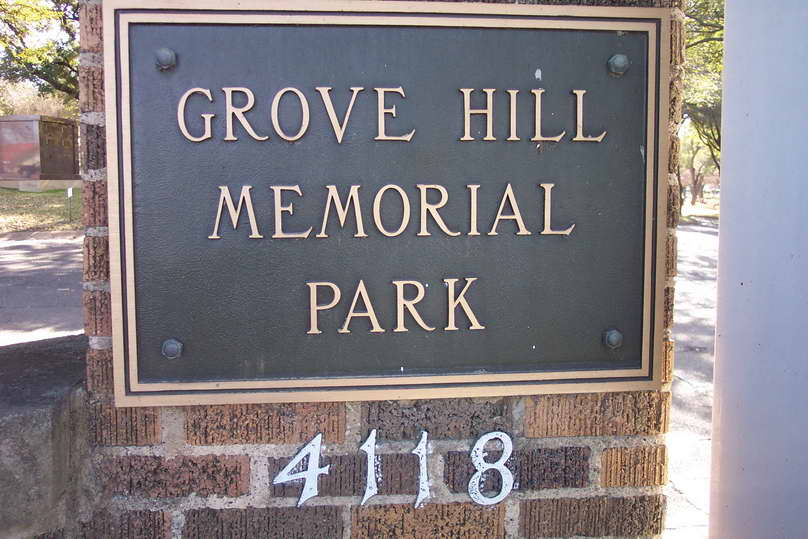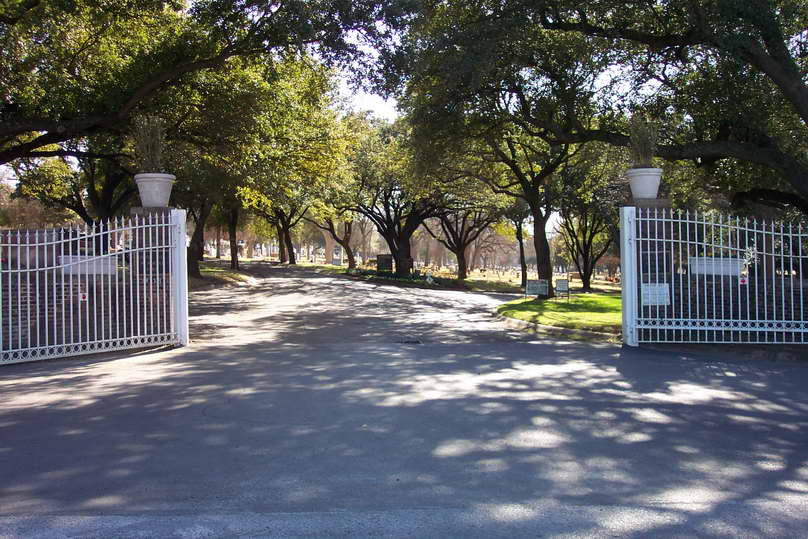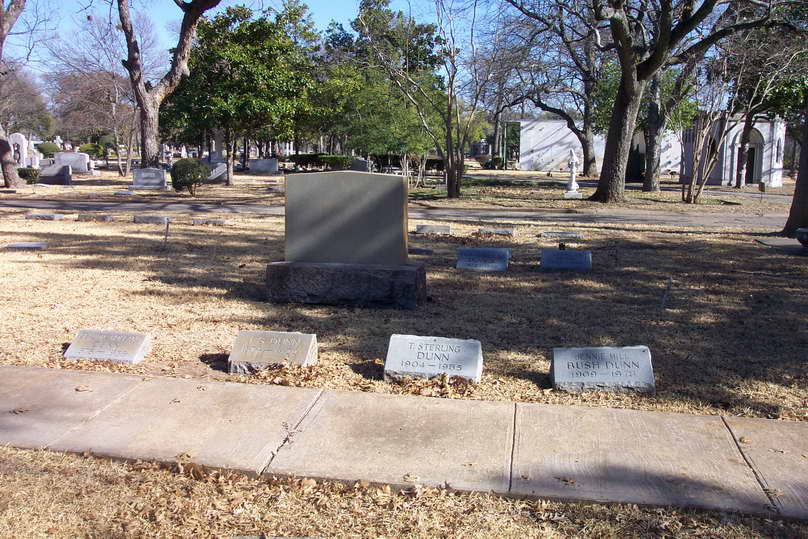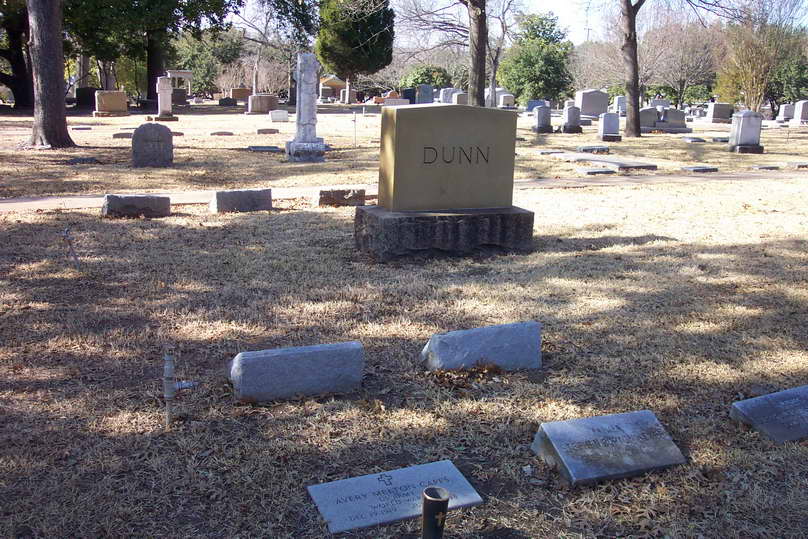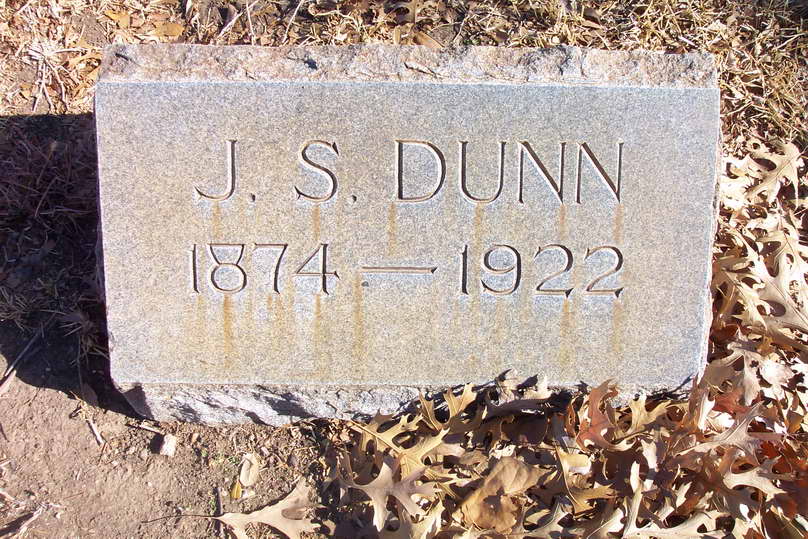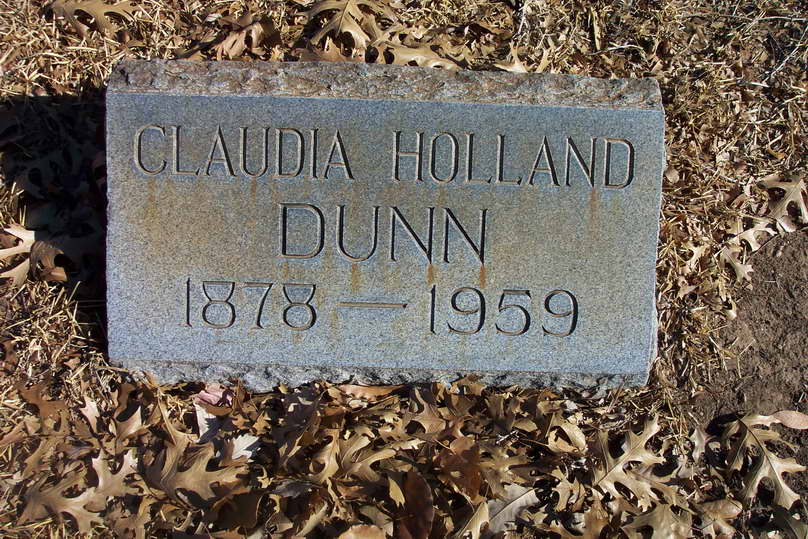James Sterling Dunn
1874-1922
Ligon Portraiture Photo
![]()
Table Of Contents
James S. Dunn, Nichol
J.S. Dunn, Nichol
As I Knew Brother J.S. Dunn, Nelson
The Funeral Of J.S. Dunn
A Word Of Appreciation
James Sterling Dunn Is Dead
Photo Of The Dunn Brothers
Location of the Grave Of J.S. Dunn & Grave Photos
James S. Dunn
James Sterling Dunn was born at Readyville, Tennessee, March 30, 1874, of Irish descent. His father died when he was eight; his mother lived in Nashville, Tennessee.
When he was a boy he attended the public school in his area, then he attended the High School at Readyville. Still later he attended Winchester Normal for three years. Upon completion he began teaching there three years, at which time he entered Nashville Bible School in Nashville. He finished there after two years.
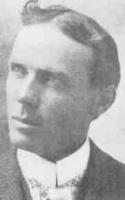 He obeyed the gospel at the
age of seventeen. Within a year he in turn baptized his first
convert. Since that time he sought to serve the Lord in as many ways
as he could. He preached the gospel in many different places. He was
instrumental and helping many brethren in building their own church
buildings. He enjoyed mission work, and was particularly successful
in difficult areas. Within the first sixteen years of his ministry
he baptized over 2000 people into Christ.
He obeyed the gospel at the
age of seventeen. Within a year he in turn baptized his first
convert. Since that time he sought to serve the Lord in as many ways
as he could. He preached the gospel in many different places. He was
instrumental and helping many brethren in building their own church
buildings. He enjoyed mission work, and was particularly successful
in difficult areas. Within the first sixteen years of his ministry
he baptized over 2000 people into Christ.
He moved to Texas where he served the Lord successfully in the Fort Worth area. He preached for some time for the Central church there, which at the time was one of the most successful congregations in that great state.
In his life he greatly admired his mother, who raised him and four brothers who all preached, one of which was a physician, yet preached from time to time. She single-handedly raised her boys to serve God, and serve God they did all their lives. Another woman in his life was his wife, Claudia Holland, whom he married on December 25, 1900. She served the Lord many years as a co-laborer with James.
Brother Dunn passed from this life in 1922 and is buried with in a family plot in the old Memorial Park Cemetery in Dallas, Texas.
-Gleanings From Gospel Preachers Who Blazed The Trail, by C.R. Nichol, 1911
J.S. Dunn
In the War between the States, Frank Dunn, the father of J.S. Dunn, was in my father's company, and on one occasion when he fell wounded between the battle fronts my father went for him and carried him off the battle field. When the unholy conflict ended and father returned to his Tennessee home, he learned that his comrade—that one of his men, Frank Dunn—had been left sick in North Carolina, and he went to North Carolina and brought him in a wagon to his Tennesee home, which was but a few miles from the home of my father. The father of J.S. Dunn was buried in the same cemetery where my father and mother are buried—Murfreesboro, Tenn.
In speaking to me of the Dunn boys, and learning of their faithfulness to the gospel, father said: "I would be sorely disappointed in them if they were otherwise: for no truer, braver, soldier wore the uniform than their father."
If for no other reason, I would love the Dunn boys for the high regard in which they held my father and the honor they have ever been ready to show him and his memory.
I loved Brother J.S. Dunn for his personal worth as a faithful gospel preacher and his unfailing friendship for those who came into his life; for his effort to ever discharge his duty as a Christian, son, husband, father, brother, friend, and citizen.
The second week in December of this year he was with me while I was engaged in a debate with a Baptist. He was anxious to see the truth prevail, and rejoiced in its triumph. To me he said: "Brother Nichol, the people here are anxious to know the truth; their souls are in jeopardy; the congregation here is weak; this may be your last debate—it may be the last opportunity to teach the people the truth. The Lord bless you in this work. At the close of the first day of the debate he said: "You have allowed nothing to prevent the presentation of the truth. You made the people know that you were not striving to whip the man you are debating with, but to teach the truth, and you have pleased the Lord, I am certain. Such debates are good for the truth." Such expressions were characteristic of Brother Dunn. He was ever ready with a word of exhortation or commendation. He did not seek to be great as a man, but his every ambition as a preacher was to feature the truth, to advance the cause of Christ, to save souls.
During this our last visit with each other he often spoke of his faithful wife, her loving care for their children and devotion to the church. he talked to me about his children and their love for the church, and how he was striving to be a factor in their lives. He recited to me how Sterling, his son, a young man in college, at times would say, "Father, come sleep with me tonight." Such a request from a young man to his father speaks much to every parent and is a compliment to both parent and son, and, too, it gives an insight to the character of each. Of his daughter, Louise, he said: "I think there is nothing in the world she would do should he ask her not to."
At the age of sixteen Brother J.S. Dunn was baptized by Brother Granville Lipscomb, and the Sunday following his baptism he began to do public work in the church. He was educated in the high school at Readyville, Tenn., the Winchester Normal, and the Nashville Bible School.
As a minister, he spent one year with the church in Rockwall, Texas; two years with Pearl and Bryan Streets Church, Dallas, Texas; two years with the church in Colorado Springs, Col.; two years with the church in Denton, Texas; two years with the church in Weatherford, Texas; four years with the Central Church, Fort Worth, Texas; four years with the Oak Cliff Church; one year with the church in Waxahachie, Texas, and then moved to Dallas, Texas, where he lived till his death. In addition to the work with the congregations mentioned, he spent much of the summer in evangelistic work, in which field he was remarkably successful, not only ion bringing sinners to Christ, but in stimulating congregations to greater activity and deeper devotion. His program in protracted meetings, as well as when laboring with congregations, was a constructive one. He sought to develop the material in the congregations where he labored.
In the death of J.S. Dunn the church has lost one of her most useful ministers, which will be keenly felt where he has labored. Sister Dunn, a faithful husband the children, a devoted father; the State, one of her best citizens; and I have lost one of my best friends.
I know no higher compliment to pay my brother, J.S. Dunn, than to say: He was a Christian.
-by C.R.N. (Charles Ready Nichol)Gospel Advocate, March 02, 1922, page 202
As I Knew Brother J.S. Dunn
Expecting his own immediate family, I doubt if any man knew Brother J.S. Dunn as intimately as I knew him. Though four years my senior, we were closely associated in our lives.
On March 20, 1874, among the beautiful hills and verdant valleys of Middle Tennessee, near the little village of Readyville, ten miles east of the beautiful and historic city of Murfreesboro and a short distance from the picturesque Stone River that rises in the Cumberland Mountains, the subject of this sketch was born into this world. Brother James S. Dunn's father died as a result of a wound received in the Civil War, when the boy, James, was about ten years old. Being blessed with a God-loving, energetic mother who possessed an indomitable will, young James was destined (and was trained) to noble and useful manhood. Brother J.S. Dunn's mother was my father's sister, and on account of the relationship and the proximity of our homes we were associated very closely in our early lives almost daily.
I knew James Sterling Dunn intimately. I have played with him, and gone swimming, hunting, courting, and to school with him. Since we became men we have held meetings together and had varied business dealings, and I can freely say that I always found him honorable in all his dealings, and I can freely say that I always found him honorable in all his dealings and trying to keep himself on the Lord's side on all occasions. I loved him, not merely for the relationship in the flesh, but his love and devotion to our God. J.S. Dunn had no compromise to make with sin and evil men. He was not afraid to speak his convictions on all occasions. I have been with him in his personal work with the church here in Dallas, and I have heard him say to the derelict members on the streets and in their homes and places of business: "Brother, you were not at the Lord's house last Sunday. You can't live this way and go to heaven when you die. I am expecting you and am going to look for you next Sunday, and I hope I will not be disappointed in you. God is not pleased with the way you are doing, and you are not treating him right." Not long ago I heard him say to a leading attorney in Dallas, who had at one time been in church work, but had wandered off: "Judge, what do you think is going to become of your when you die, and what do you want me to say at your funeral?" The Judge replied: "Brother Dunn, I know I will be lost if I do not do better, but I expect to do better." Brother Dunn was one man that carried his religion in his business dealings, in his travels, and never let an opportunity pass to speak a word for the church. He would not listen to those that malign, berate, and vituperate the churches of Christ. What if I should slander your wife? You would not like it. Neither will Christ." His idea was to condemn sin in the church, but never condemn the church.
Brother Dunn was man that went in "high gear" all his life. Though not physically strong, he was a bundle of energy and industry. His neighbors will testify that he kept one of the cleanest premises in all the neighborhood. He advocated a clean pulpit and pew. He often said to me that the evil among preachers did more harm than all the evils of the church. He has been the means of establishing a number of new congregations in Texas and other States. He has done more to arouse lethargical and sleepy churches than almost any other preacher in Texas. Even in his Sunday appointments he would preach as though he were in a revival. J.S. Dunn will be missed for his life, his teaching, and his defense of truth and the church.
Brother Dunn leaves three most excellent children. Louise, the oldest, is a student in the S.M.U. and will take her degree this spring. She is above the average in character and devotion to the church of Christ. She will not permit the truth to be trampled under unhallowed feet, regardless of where she may be or the social standing of the trampler. Sterling, the next, a bright, intellectual young man, is also taking a degree in the S.M.U. He is filled with industry, and has worked after school hours and on Saturdays for several years and practically made his way in the way of clothing himself and meeting incidental expenses. Claudia, yet too young to realize what the loss of a father means, is a promising little girl. The last to mention, but not the least, by any means in character and devotion, is the wife of J.S. Dunn and the mother of his children. She is a very modest, reserved woman. All who know her love her, and have the utmost confidence in her as a true neighbor, friend, wife, mother, and Christian woman. All who know her love her, and have the utmost confidence in her as a true neighbor, friend, wife, mother, and Christian woman. She is an exceptionally strong character. Modest, sweet, kind, gentle, yet brave, energetic, and untiring in her efforts to please her family, make her home happy, and properly train her children. Brother Dunn found a jewel for a wife when he married Claudia Holland. To this humble, consecrated woman much credit should go in the garnishing and tempering of the character and work of our deceased brother. They were in my home for a few months, and I know this godly woman. She has such an even make-up in all her faculties. She loved her husband, and he loved her, and that is what made home sweet and the burden of death so hard to bear. This faithful preacher's widow is left behind with her children to mourn their loss. May God gently lead you, Sister Dunn, and help you and your children to bear your cross heroically. Brother Dunn is now a beacon light to you and all those who knew him, to look higher and upward to heaven, where we will meet in yonder world to bask in the sunshine of God's eternal love.
A loving husband, a faithful father, a strong and devoted gospel preacher, a good neighbor, a noble citizen, a lover of the Lord Jesus Christ and his church, and an honest man, is gone from this stage of action. A great loss to us all and the cause of Christ has taken place, but heaven has gained a well-developed sheaf. One of Brother Dunn's favorite texts in preaching was Rev. 14:13. Now I come to apply his text for others to him: "Blessed are the dead which die in the Lord." I might add one other: "Precious in the sight of the Lord is the death of his saints." (Ps. 116:15.) Our loss is heaven's precious gain. It is certainly better to go and be with the Lord. (Phil. 1:23).
-J.B. Nelson, Gospel Advocate, March 03, 1922, page 202,203The Funeral Of J.S. Dunn
All Saturday morning, February 4, it had rained, and the clouds hung dark and heavy: but about two o'clock in the afternoon, as we wended our way, sadly, to the big church house that has stood for so many years on the corner of Pearl and Bryan Streets, in Dallas, the sky began to brighten and the sun came peeping out. By the time we reached the church the sun was streaming through the big windows, and we took our seats quietly and watched the crowd gather and fill up the long benches. It was not long until the house was full—our friends from the Oak Cliff congregation that we see so often and those from the other congregations across town, and many from out of town that we did not know. The church house was filled, except for the first four rows, which were soon to hold the sorrowing family of Brother Jim Dunn. We had gathered there with heavy hearts in honor of Brother Jim, and to share with his family this great burden of sorrow that had suddenly come upon them: to hear the beautiful words of tribute and praise and love so worthily bestowed upon him. And it was hard to realized that Brother Jim was gone.
As we sat there waiting, looking upon the four empty rows of seats and upon the platform covered with ferns and potted plants, we thought of this old mother church of Texas that has stood for so long upon the corner of Pearl and Bryan Streets, and we thought how its old wall must be steeped in the gospel; for how many, many of God's servants must have preached from that rostrum in the years gone by! How many times our Brother Jim must have passed up and down those aisles, and how many times he must have stood upon that platform, and, like Paul, expounded and preached to those of the household of faith gathered together in one accord! How many had been led gently down the steps of the little baptistry there behind where the ferns and plants stood, and had gone down into the water and come up out of the water to walk in newness of life!
And we of the Oak Cliff congregation felt some way that Brother Jim belonged to us. While others loved him and sorrowed for him (for his friends could not be numbered), we felt that somehow we must have been closer to him than others. Had not his home been there near by in Oak Cliff for years? Did not his little wife and his splendid children worship with us every Lord's day, and did we not really owe to Brother J.S. Dunn the great success of the Oak Cliff congregation? Not far from the Oak Cliff church house little Claudia first saw the light of day, and there, too, Louise and Sterling had grown from childhood to young womanhood and manhood.
All of this passed through our minds as we saw our own Brother Stovall gather his singers together at one side of the platform. And presently they came—and we shall never forget the little procession coming slowly and sadly up the aisle of the church. Our dear old Brother Phillips (D.E.) walked in front, his graying head bowed in sorrow. We could not keep from thinking how very fitting it was the Brother Phillips should lead the little procession, for how many times must he and Brother Jim have consulted together back there in the early days of the Oak Cliff congregation? And behind Brother Phillips, bearing the beautiful, gray, flower-laden casket, came my own brothers, J.F. and Sam Peeler, and Brethren Fisher, Wise, Weaver, Moran, and Neece. To think of the Oak Cliff congregation is to think of those eight men—tireless, faithful workers in the vineyard of the Lord. And the tears flowed from our eyes as we recalled how short a time before Brother Jim had been there in that very church shaking hands and talking with those very men who were now doing this last sad service for him.
And the saddest picture of all was the sorrowing one behind. The brave little widow on the arm of Brother G.A. Dunn; behind them the dear old mother, supported by the strong arm of Brother John Dunn; and there was little Brother Jasper and Dr. Dunn and the sisters from far away States. How our hearts ached for them! And we wondered if there if there had ever been such a family as this one. Could any of us really appreciated the greatness of that little mother who had given to the world such wonderful preachers of the gospel?
Finally, after all of the flowers had been brought in such beautiful tributes of love from the many, many friends—we saw Brother Pullias mounting the platform, and we recall his sad face and his sad voice as he opened the Book and began to read Paul's words. I would not have you to ignorant, brethren, concerning them which are asleep; and after that we remember that Brother Colley prayed such a beautiful prayer, and somehow our hearts seemed heaviest when he mentioned in his kind, gentle voice in that prayer, "this little one who does not understand." We thought of dear little Claudia, and how the mother's heart would ache when in the future this little one would ask about the father who would come not again.
And then Brother T.W. Phillips, of Fort Worth, stepped upon the rostrum, and we wish that it was within our power to repeat that wonderful service. We wish that everybody might know the beautiful and fitting words that fell from his lips that day as, with trembling voice and tears rolling down his cheeks, he recalled the profitable life of this great servant of the Lord. The love of Brother Phillips and Brother Jim for each other was a wonderful thing—referred to in life as "David and Jonathan"—saluting each other for so many years as "David" and "Jonathan"—It was sad for us here to witness this farewell between the two. They had made the promise to each other that whichever should pass over the river first, the one that was left should do this last sad service for him; and Brother Phillips recalled his own recent illness when he lay for so long in a hospital bed, and he told us how the gentle hand of Brother Jim had smoothed his brow, and of the words of comfort given to him in that kind of voice. And Brother Phillips pictured to us the home back there in Tennessee where our Brother Jim was a boy, and when the sorrowing men gathered there to mourn this brother who was the first one to go of that wonderful family, and the little mother as she taught them the words of light and truth, thereby planting the seeds in the hearts of those boys that should grow and ripen, and as they became men and preachers, the great harvest, the great hundredfold that had been reaped. Such an impressive service, never to be forgotten by those gathered there—the beautiful flowers, the soft strains of the songs from the singers!
Finally, as we listened to the dear old song we have heard so many times, "Shall We Gather At The River?" the congregation was allowed to pass in sections around by the casket and to look for the last time upon the cold, still face of the man we loved.
After a while we found that we had reached the cemetery, and that picture will remain with us as long as we live: the flowers, so many wreaths and sprays, and the big white cross and anchor and the emblems of love from the congregations all over the State who attributed to Brother Jim the success of their work; the little family sitting with bowed heads, and around them standing the friends and relatives; and we can hear again the last sweet prayer offered by "Jonathan" for the departed "David;" and did the words of "God Be with You Till We Meet Again" ever sound half so tender and sweet, as sung that day around the last resting place of Brother Jim? And we will always remember how the little black-clad figure of Mother Dunn, still resting upon the strong arm of Brother John looked, as she walked near to the grave and stood there looking in and then Brother Jasper, at the youngest of the boys, as he too, walked near and with bowed head said as if to himself, "It is hard to give him up, hard to give him up." And somehow we have all been thinking since, over and over, of Brother Jasper's words, and we, too say with him: "It is hard to give him up, hard to give him up."
-Ruby Register, Gospel Advocate, March 2, 1922, page 203,204
A Word Of Appreciation
In the seat of brother J.S. Dunn, which occurred at his home in this city on February 3, the church of Christ suffers the loss of one of her greatest standard bearers. I had known him personally but a few months, though long enough to appreciate his greatness as a man, a Christian, and a preacher of the gospel. He loved the church and spent his life building it up in teaching others to "live so you can go to heaven when you die." I have never known a more beautiful character or a more consecrated Christian than Sister Dunn. The many virtues of those noble parents are reflected in the children, Louise, Sterling, and Claudia. The Oak Cliff Church, with which Brother Dunn labored several years and where the family now worships, shares in the sorrow occasioned by his death. Our prayers and tenderest sympathy are expressed for Sister Dunn and the children. We know they are sad, but their sorrow is not "as the rest who have hope."
-C. Mitchell Pullias, Gospel Advocate, March 2, 1922, page 204James Sterling Dunn Is Dead
At 2:45 A. M., Friday, February 3, Brother G.A. Dunn called me by long-distance telephone from Dallas and said: "Brother Phillips, Brother Jim died this morning at one o'clock, and we want you for the funeral." This was so sad and so unexpected. It was unexpected by even the immediate family. He had been sick with a cold for several days, but no one thought him seriously ill. He died as he had lived—preaching the gospel; and his subject was, "The Faith of Abraham." He was delirious at times during the day Thursday before his death, and during each time he preached "the word" with as much clearness and power as he could have done when at his best. He dropped off to sleep, and was gone!
James Sterling Dunn was born on March 30, 1874, and was the middle child of nine children born to Thomas Franklin and Levisa Elizabeth Dunn. His father died when J.S. Dunn was only eight years old. A little sister passed away at the age of five. His mother, four brothers, and three sisters survive him. Besides, he leaves his wife and three children to mourn their sad loss. His wife and Louise, Sterling, and Claudia are left alone now. Two of the sisters were present at the funeral, and his four brothers, G.A., John E., J.W., and Dr. J.F. Dunn, were all there. All of the four brothers are gospel preachers, as well as the finest of men. His sisters are all noble women, and his dear old mother is a princess among women. Her foreparents were from Penrith County, England, and they first settled with "The Virginia Colony" in come to this country. Scotch Tom Nelson was one of the signers of the Declaration of Independence. Our own J.B. Nelson was raised by the mother of these Dunn boys, and of his aunt he says: "She seems more like my mother to me than she did my aunt." No wonder J.B. is a great man and a great preacher.
The funeral services were held in the Pearl and Bryan Streets Church, in Dallas. After a number of select songs were sung, Brother Pullias, of the Oak Cliff Church, read the scripture lesson, and Brother O.A. Colley led us all in prayer. Then this writer preached from the text: "Thou wilt keep him in perfect peace, whose mind is stayed on thee: because he trusteth in thee. Trust ye in the Lord forever: for in the Lord Jehovah is everlasting strength." (Isa. 26:3,4.) After such comments as were deemed proper to make, and speaking of the trustful and hopeful life of this great man of God and paying tributes to his aged mother and faithful wife, we joined with the poet and said to the bereaved ones, as well as to the sympathizing friends:
Trust your ever loving Savior, when the waves of doubt assail.
And your feeble bark is tossing in the world's tempestuous gale.
Trust him, trust him, fully trust him; he will guide you safely through.
Trust him when your soul is laden with a heavy load of care;
None but he, the Man of Sorrows, knows the grief you have to bear.
Trust him when your friends forsake you, those in whom you would confide,
And turn away so coldly from you, walking no more by your side.
Trust him when the dark mists gather, and your eyes with tears are dim;
Trust him when you cannot see the pathway, 'tis all well known to him!
Should a wondrous gleam of sunshine come to make your live more sweet,
He alone has been the giver; thank him, kneeling at his feet.
Trust him now, and trust him ever, till you lay life's burden down;
Then he'll give to you the new name, raiment white, and throne and crown!
I had known Brother Jim Dunn very intimately for many years. We had lived close neighbors for years, and grew to love each other like Jonathan and David, and so addressed each other in conversation. I shall miss my dear comrade so much; but—O,alas!—how much more will he be missed by that lonely wife and children! Yes, and by the dear old mother, and the sisters and the brothers, and a great host of fine Christians all over the land. But Brother Dunn has crossed the river and gone on to the paradise rest-to await our coming. And we are coming, dear "David," to join the "ransomed host" after a while. "The sting of death is sin; and the strength of sin is the law. But thanks be to God, which giveth us the victory through our Lord Jesus Christ. Therefore, my beloved brethren, be ye steadfast, unmovable, always abounding in the work of the Lord, forasmuch as ye know that your labor is not in vain in the Lord." "Blessed are the dead which died in the Lord." They rest from their labors, but their works will follow on and on and on. "Wherefore comfort one another with these words." Brother J.S. Dunn cannot come back to us, but we can go to see him in the sweet after while. The Lord bless and keep his dear family from harm, and unite them in heaven around the great white throne, is my prayer.
-T.W. Phillips, Gospel Advocate, 1922, 02.16.159
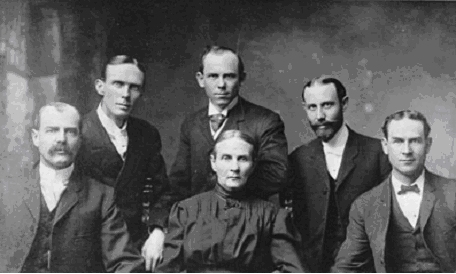
John, Jim, Jasper W., G.A. (Gus), Tom & Elizabeth Dunn "Mother"
James "Jim" S. Dunn Was One Of The Five Dunn Brothers Who Preached The Gospel In The Early 20th Century
![]()
Directions To The Grave Of J.S. Dunn
James S. Dunn is buried in the Grove Hill Memorial Park Cemetery in Dallas, Texas. From downtown Dallas head east on I-30 and take Exit 49B. It will enter Lawnview Ave. The cemetery will be in front of you. Go left on Lawnview and then turn right on Samuell Blvd. Enter the cemetery and up the hill. The grave is located near the front of the cemetery. Begin looking for the Oddfellows Cemetery sign. The plot is located across from the corner of the Oddfellows Cemetery Sign on the east side of section 52 in the cemetery. While visiting in the cemetery, be sure to stop and visit the grave of another great preacher of yesteryear, Early Arceneaux.
GPS Coordinates
32° 47' 526" N x 96° 43' 271" W
or D.d. 32.7921,-96.72118333333333
17 Ft. Acc. / Grave Faces West
East Side Of Section 52 Lot 58
View Larger Map
J.S. Dunn
1874-1922
Claudia Holland Dunn
1878-1959
![]()
